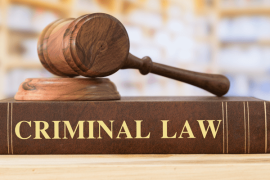Criminal law has four important principles. These principles are set out briefly here and discussed more fully later in this topic and Court.
Innocent until proven guilty (the presumption of innocence)
The basis of our system of criminal justice is that a person, although charged with an offence, is considered innocent until proven guilty of the offence. The adjudicator, judge or jury, as the case may be, must be satisfied beyond a reasonable doubt that the person is guilty. When there is reasonable doubt, the individual must be cleared, meaning they are found not guilty of the offence. Know more about good criminal lawyer in bangalore
Burden of proof
The prosecution bears the responsibility of proving the guilt of the person accused of an offence, known as the defendant. To convict the defendant of an offence, the prosecution must establish guilt beyond a reasonable doubt. The burden of proving innocence does not fall on the defendant.
This principle applies universally in all criminal trials. However, there are instances where the defendant may need to present evidence to support their defence. For example, in cases where an offence is committed “without reasonable excuse,” the defendant must explain their excuse. Nonetheless, it remains the prosecution’s duty to demonstrate that the excuse is not reasonable.
Occasionally, the burden of proof for a specific defence, such as insanity, may rest with the defendant. However, in such cases, the defence only needs to be proven on the balance of probabilities, rather than beyond a reasonable doubt, as required of the prosecution.
Right to remain silent
In general, individuals are not obligated to respond to police inquiries. However, there are exceptions to this rule. One primary exception is when a police officer can request the name and address of a person caught committing an offence, suspected of committing or about to commit an offence, or someone who may assist in an investigation of an offence or suspected offence [Summary Offenses Act 1953 s 74A]. In such situations, refusing to provide one’s name and address, or providing false information, constitutes an offence. Additionally, motor vehicle drivers must disclose their name and address, along with the vehicle owner’s details, and may be asked certain questions regarding firearms during arrest and questioning procedures.
Double jeopardy
The double jeopardy rule in criminal law states that an individual should not be punished multiple times for the same offence, nor should they be subjected to the risk of being convicted twice. Essentially, if a person has been charged, tried, and acquitted, they cannot be tried again for the same case. However, there are instances where a new trial may occur. For instance, if an appeal court reverses a conviction, or if the initial trial ends with a hung jury or a mistrial, a new trial may be ordered.



